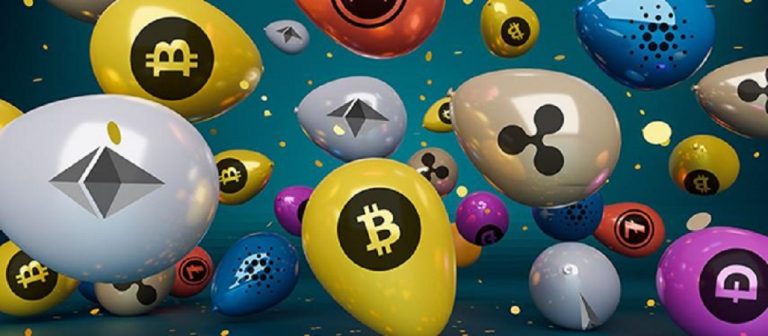
In a significant development for the blockchain industry, Polygon has initiated a strategic transition from its native token MATIC to a new token, POL. This move marks a pivotal moment for the platform, as it aims to enhance its ‘hyperproductive’ utility and foster greater community participation.
The migration, which commenced on September 4, 2024, is a seamless process for users with staked MATIC, as their holdings are being automatically upgraded to the new POL token. This upgrade is not just a mere token swap but a thoughtful evolution of the ecosystem, reflecting Polygon’s commitment to scalability and growth.
The POL token is designed to be a ‘hyperproductive’ asset, which means it will play a crucial role in the aggregated blockchain network envisioned by Polygon. It is set to become the native gas and staking token of the Polygon Proof of Stake (PoS) network, underpinning the network’s security and operations.
Register for Tekedia Mini-MBA edition 18 (Sep 15 – Dec 6, 2025): registration continues.
Tekedia AI in Business Masterclass opens registrations.
Join Tekedia Capital Syndicate and co-invest in great global startups.
Register for Tekedia AI Lab: From Technical Design to Deployment.
For users, the transition process has been made as smooth as possible. Those holding MATIC on the Polygon PoS chain need not take any action, as their tokens will automatically convert to POL. However, users on the Ethereum network and Polygon’s zkEVM layer-2 network might need to manually migrate their tokens through the Polygon Portal Interface or by bridging to Ethereum.
Bitcoin ETFs recorded $287 million in net outflows, marking the most substantial withdrawal since May 2nd. This development is a critical indicator of investor sentiment and market trends. The outflows were led by Fidelity’s FBTC, which saw $162.3 million in withdrawals, while Grayscale’s GBTC experienced $50.4 million in outflows. Other funds, including BITB and ARK, also reported notable withdrawals.
This trend coincides with a broader downturn in the cryptocurrency market, which has been influenced by various economic factors. Weak U.S. manufacturing data has revived growth concerns, contributing to the negative sentiment and affecting risk assets like cryptocurrencies. The outflows from Bitcoin ETFs reflect a cautious approach from investors who are possibly looking to reduce exposure amid uncertain market conditions. It’s a reminder of the volatile nature of the cryptocurrency market and the need for investors to stay informed and agile.
Volmex Finance, a crypto derivatives protocol, has recently launched a groundbreaking financial instrument for the cryptocurrency market: the Solana Volatility Implied Volatility (SVIV) Index. This index represents a significant advancement for traders and investors interested in the Solana ecosystem, providing a tool to measure the expected price fluctuations of Solana’s SOL token over a 14-day period.
The SVIV Index is designed to give market participants insights into the anticipated volatility of SOL, allowing them to make more informed decisions regarding their investment strategies. Volatility indices are crucial in traditional financial markets, and their introduction to the cryptocurrency sector indicates a maturation of the market, aligning it closer to established financial systems.
For Solana, which has positioned itself as a high-performance blockchain supporting decentralized applications and cryptocurrencies, the SVIV Index offers an additional layer of sophistication for traders. By quantifying expected price swings, traders can better assess risk and potential reward scenarios associated with SOL’s market movements.
The launch of the SVIV Index by Volmex Finance is not just a milestone for Solana but also for the broader crypto market, as it reflects the growing demand for complex financial products within the space. As the cryptocurrency market continues to evolve, we can expect to see more such instruments being developed, catering to the needs of a diverse range of market participants.
Consequently, Blast, the burgeoning force in the decentralized finance (DeFi) space, has recently unveiled the details of its highly anticipated “Big Bang” competition, designed to ignite innovation and growth within the mobile decentralized application (DApp) development community. This competition stands as a testament to Blast’s commitment to fostering a vibrant ecosystem, offering a substantial $250,000 in grants to support builders who are ready to bring their visionary projects to life.
The “Big Bang” competition is not just about financial grants; it’s a holistic program that aims to provide comprehensive support to developers. Participants will have the opportunity to tap into a wealth of resources, including co-marketing opportunities and access to the Blast Foundation’s network, which could prove invaluable for both seasoned and emerging talents in the blockchain arena.
The initiative is part of Blast’s Phase 2 strategy, which emphasizes the development and incentivization of mobile DApps through the Blast App. A notable aspect of this phase is the distribution of 10 million Gold, Blast’s native token, which will be allocated to support DApps on the Blast Mainnet, with a special reserve for newly launched applications.



